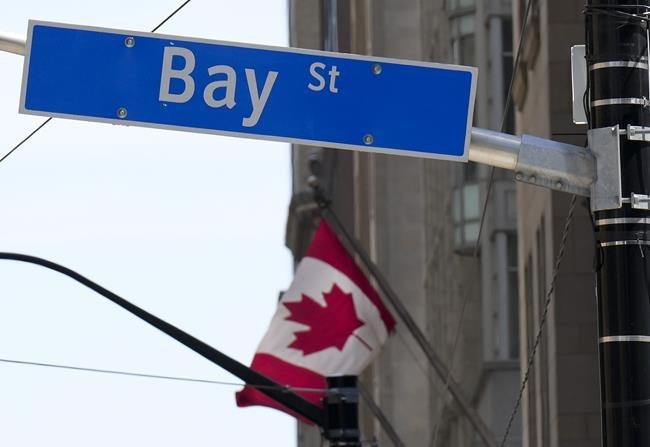TORONTO — Canada's main stock index was down almost 300 points in a broad-based decline, while U.S. stock markets also fell amid a stronger-than-expected jobs report.
“We’ve seen since Monday the markets kind of start to roll over, pulling back slightly after hitting that short-term peak,” said Brianne Gardner, senior wealth manager of Velocity Investment Partners at Raymond James Ltd.
The S&P/TSX composite index was down 293.20 points at 19,810.69.
In New York, the Dow Jones industrial average was down 366.38 points at 33,922.26. The S&P 500 index was down 35.23 points at 4,411.59,while the Nasdaq composite was down 112.61 points at 13,679.04.
Markets are reacting to continued hawkishness from central banks and new jobs data out of the U.S. that “blew expectations out of the water,” said Gardner.
U.S. job openings were slightly lower in May at 9.8 million, down from 10.3 million in April, but still high by historical standards. Meanwhile, layoffs were lower and more people quit their jobs, a sign of confidence in the labour market.
“Everyone thought we’re going into recession this year … but it seems to be that the consumer is still strong and driving the market,” said Gardner.
Some leading indicators are pointing to a recession, noted Gardner, but “it’s just a matter of what that recession looks like” and when it happens.
In Canada and the U.S., all eyes are on the labour market, which has continued to surprise to the upside as central banks seek to quell inflation.
Canada will get its own employment numbers Friday ahead of the Bank of Canada’s rate decision next week.
The country's unemployment rate ticked upward in May for the first time in nine months and the economy lost a small number of jobs. Friday's report will help give insight into whether the economy is continuing to slow down, but even a weaker report might not prevent a rate hike next week, said Gardner.
Rate hikes in July seem all but inevitable on both sides of the border, with the Federal Reserve’s meeting minutes released Wednesday showing continued support for more tightening.
“I still think we’re going to have volatility ahead,” said Gardner. While a pullback could be in order, she noted that gains so far this year have been quite narrow, and the coming weeks and months could bring buying opportunities in some sectors.
Meanwhile, expectations are rising ahead of earnings season, which begins next week, said Gardner.
The Canadian dollar traded for 74.92 cents US compared with 75.34 cents US on Wednesday.
The August crude oil contract was up a cent at US$71.80 per barrel and the August natural gas contract was down five cents at US$2.61 per mmBTU.
The August gold contract was down US$11.70 at US$1,915.40 an ounceand the September copper contract was down three cents at US$3.73 a pound.
— With files from The Associated Press
This report by The Canadian Press was first published July 6, 2023.
Companies in this story: (TSX:GSPTSE, TSX:CADUSD=X)
Rosa Saba, The Canadian Press



